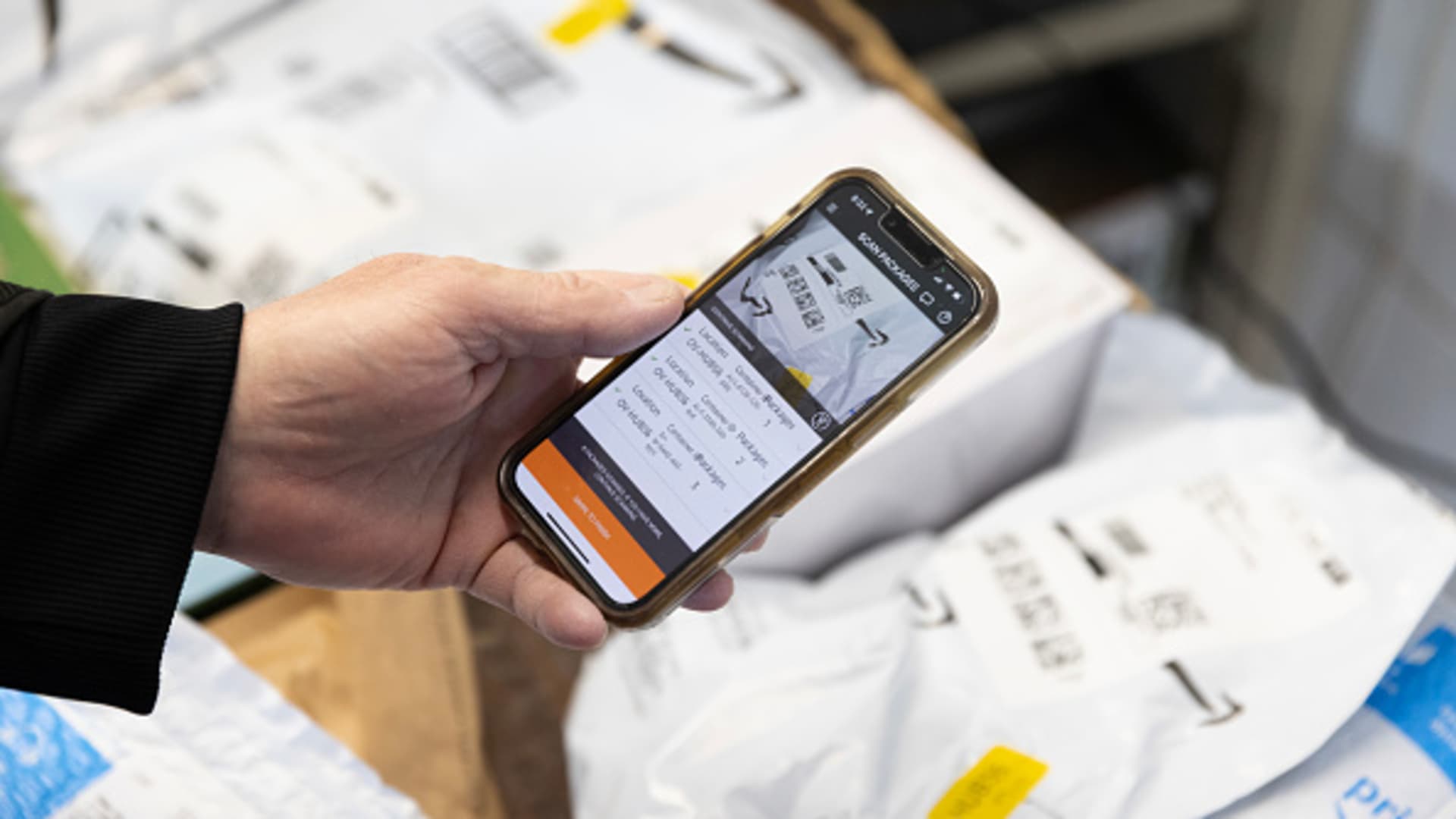Attention Main Street businesses: Amazon wants you.
One of Amazon‘s latest growth plans involves recruiting 2,500 small businesses in 23 states to help deliver packages. Dubbed “Amazon Hub Delivery,” the initiative could help Main Street businesses — like florists, coffee shops, hair salons and gas stations — earn up to $27,000 in incremental income a year, according to Amazon.
The Hub Delivery program is in some ways similar to Amazon Flex, which debuted several years ago and offered everyday Joes the option to use their own vehicle to deliver packages for the company. That initiative is now in over 100 cities and towns in the U.S., according to Amazon. The new program is currently open to businesses in 23 states: Alabama, Alaska, Arkansas, California, Florida, Illinois, Indiana, Iowa, Massachusetts, Michigan, Minnesota, Mississippi, Missouri, Nebraska, New Jersey, New York, North Carolina, North Dakota, Ohio, Oklahoma, South Dakota, Washington, and Wisconsin. Amazon said it expects to expand to more states and cities in the future.
The new delivery partnership model could prove viable for Amazon because of the potential for faster deliveries and heightened customer satisfaction. There’s also significant upside for businesses that are selected to participate, namely the ability to expand and grow through an additional revenue source, said Shanton Wilcox, partner at PA Consulting, a strategy and operations firm. But businesses also need to understand the potential expense of the commitment.
“It’s not a casual decision where the company’s delivery van is parked and not being used a few days a week and we’ll see how it goes. It’s a business decision,” Wilcox said.
Here’s what small business owners need to know about the new Amazon program:
It’s not just for existing Amazon sellers
Amazon is seeking to partner with all types of businesses that have the ability to deliver packages on the company’s behalf. Amazon Hub Delivery partners, selected via application, receive packages each morning and have the flexibility to make each day’s deliveries at their convenience, leveraging existing staff if they choose.
Businesses deliver 20 to 50 packages per day, with an average of 30 a day, according to Amazon. Deliveries are made seven days a week, with the exception of five major holidays. The program is available in super rural areas, and in dense urban areas like New York City and college towns. No delivery experience is required and there’s no long-term contract, according to information provided by Amazon on its website. Amazon says it will provide training and guide businesses through the process.
Small businesses must meet several criteria
The program only works if a small business meets Amazon’s criteria. For one, it must have a secure space to store the packages. Small businesses interested in applying must also have copies of relevant documents such as a state business registration number, sales tax permit or registration or tax identification number.
They must also have the ability to meet Amazon’s delivery commitments. Even businesses that aren’t open seven days can be eligible, provided they can receive and deliver Amazon packages on all required days.
Partners and drivers, if applicable, must pass a criminal history background and a motor vehicle record check, OSHA check and Department of Labor record check. They also have to carry appropriate insurances. This means general liability insurance and workmen’s compensation, if required. Businesses can get additional details on insurance requirements by watching a webinar.
The economics of being an Amazon delivery partner
Becoming a delivery partner is not something that will appeal, or be applicable for every small business, but those that are interested should ask a series of questions to see whether it might be something worth pursuing, said Santosh Sankar, co-founder and managing partner at Dynamo Ventures in Chattanooga, Tenn., which invests in early-stage supply chain startups.
Businesses need to work through the math to see if a partnership makes sense for them, Sankar said. Amazon didn’t say exactly how much it pays per package; but based on its earnings estimates of $27,000 a year, the rate would be $2.50 a package, assuming 30 packages a day for 360 days. In that scenario, a business could earn $75 a day.
Then the question becomes whether existing staff can be used for the new endeavor, or whether additional capability will be required and the labor and equipment costs. It could make sense, for instance, if a business is already paying a high school or college student $15 an hour and the worker has an extra three hours of capacity and an available delivery vehicle. It could even be advantageous to hire an additional worker at that rate, Sankar said. But, if a business has to purchase a company vehicle for deliveries, or do major renovations to create a secure space, it may not be worth the additional investment.
Businesses should also consider what the long-term growth potential may be. “It’s not just fulfilling your existing capacity. It’s the potential to expand, which a lot of businesses are looking for, but it has to become part of the decision-making process,” Wilcox said.
Where to go for more information
There are local in-person and virtual events for small businesses to learn more about the program. The next event is scheduled for Sept. 6 in California. Owners can also reach out directly to Amazon to schedule an in-person meeting.
